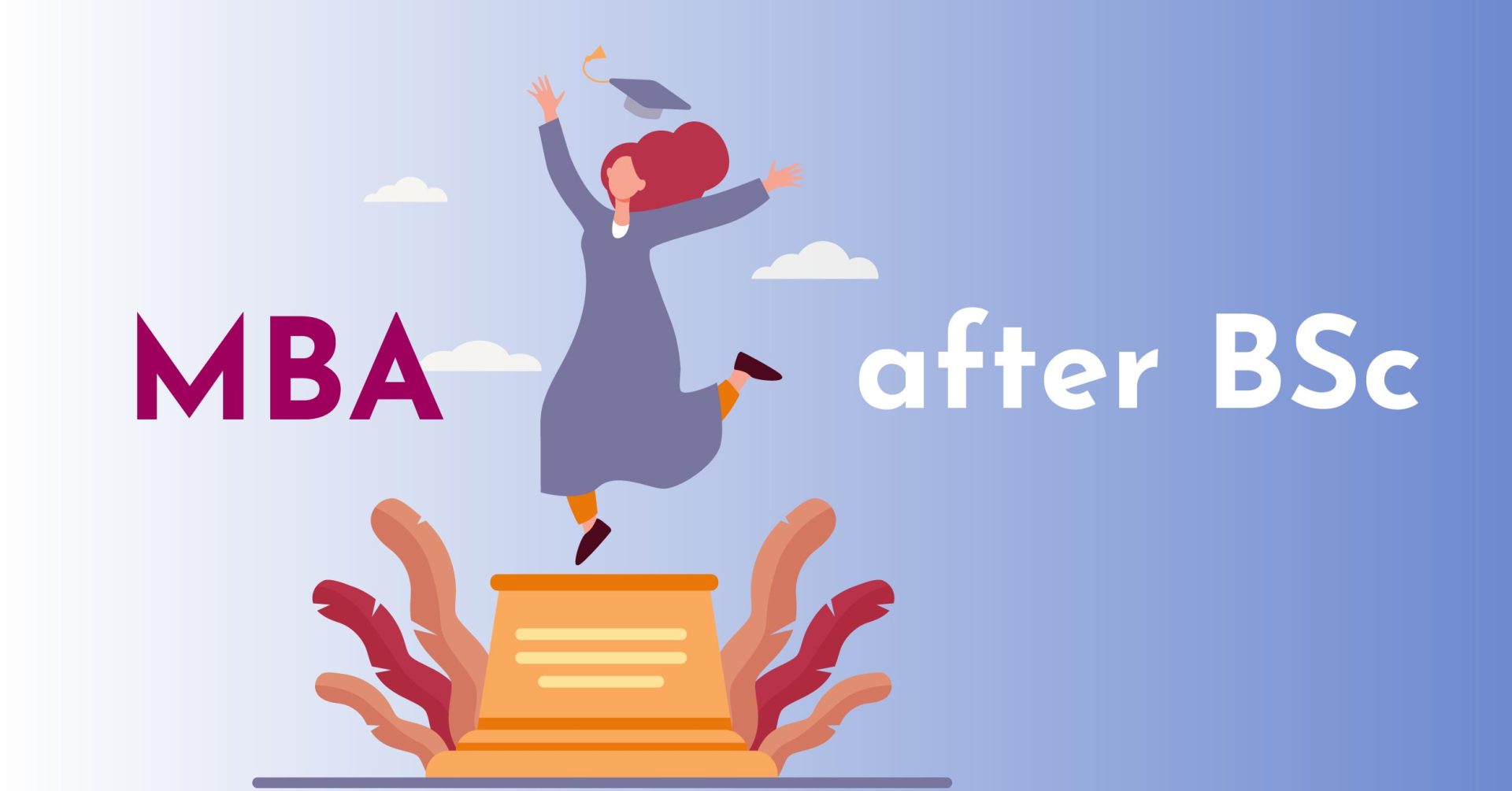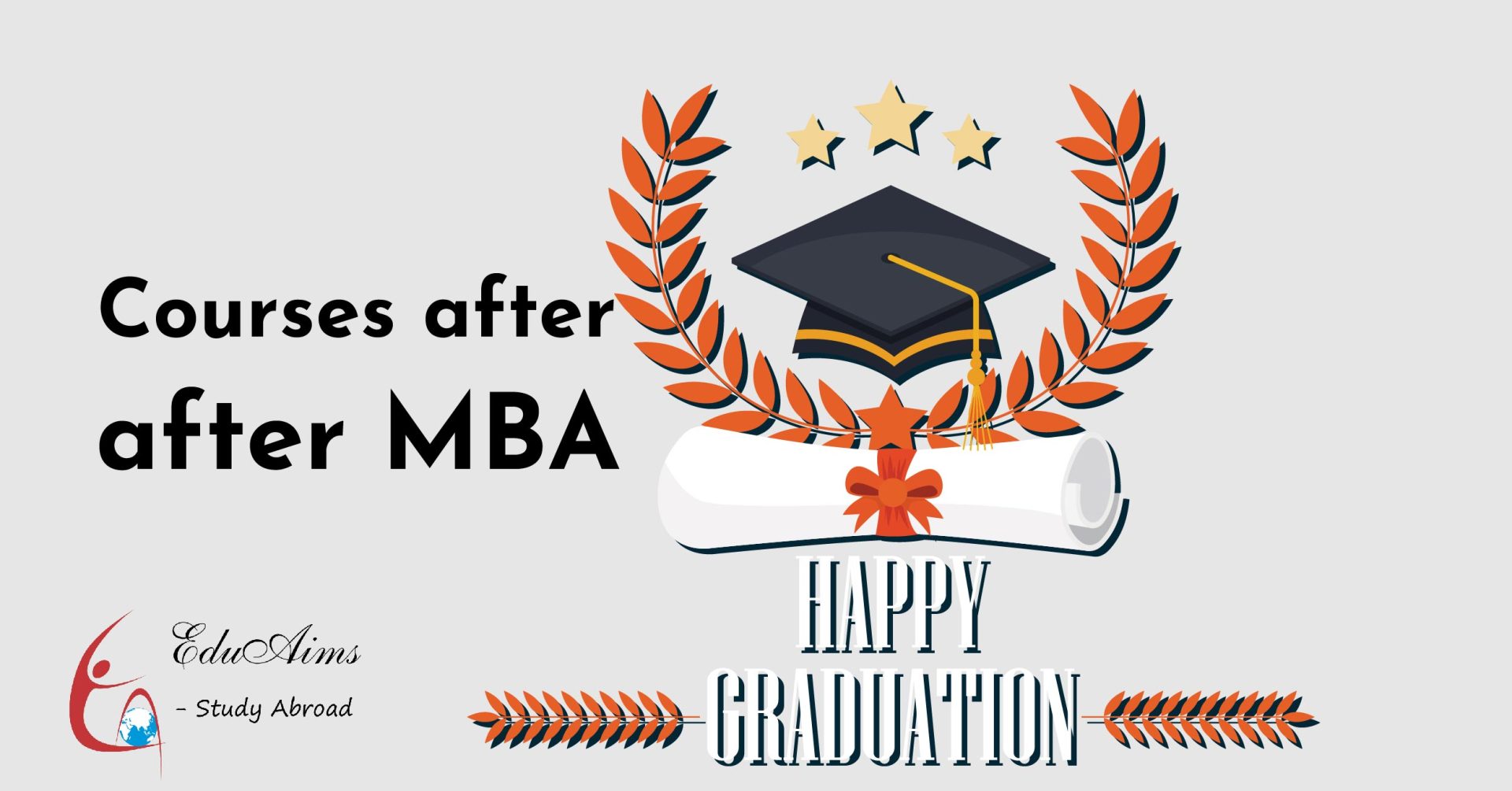PhD Courses after MBA offer an opportunity to specialise and research in a particular topic and to pursue a career in academia and research as well as in corporates. While there are only a handful of students who take up this route, it is highly rewarding both in terms of remuneration and designation. Further, owing to the research-oriented expertise in particular fields, PhD holders are also offered positions in various research organisations, think tanks, government departments [in policy making], etc. In this article, we shall present and elaborate in brief, the several PhD courses after MBA available for candidates.
PhD Courses after MBA: Key Points
The following table lists the key fundamental points related to the PhD Course for MBA.
| Course | Doctorate in Philosophy or PhD in Management |
| Level of the Course | Doctorate |
| Eligibility | Masters [recommended] |
| Duration | 3-6 years |
| Types | Regular, Distance, Online, Dual Degree, Integrated, Professional Doctorates, Accelerated, etc. |
| Admission Process | Abroad: Individual University Admissions [case by case] India: PhD Entrance Tests like UGC NET-JRF, GATE, etc. |
| Funding | Typically fully funded |
| Scholarships | Available |
| Further Degrees | Post-Doctorates, Research Fellowships, etc. |
- PhD Programs for MBA Graduates are undertaken under a supervisor/professor who belongs to the same field and holds expertise in the area the student wishes to pursue his/her PhD.
- Typically, PhD Courses For MBA Students takes anywhere between 3-6 years to be completed, it may extend beyond that as well.
- The structure of PhD Courses For MBA Students consists of rigorous coursework in the first 2 years, after which the candidate focuses on preparation of his thesis and dissertation. In the earlier stage, the candidate also performs literature review, research and analysis, etc.
- During the latter phase, he may be required to perform field work, laboratory experiments, case studies, surveys, etc.
- Throughout PhD Programs for MBA Graduates, the candidate may have gain expertise over research methodologies, statistical and mathematical tools, probability, software, etc.
Benefits of PhD after MBA
There are significant benefits of PhD after an MBA provides you not least a pedestal for a fruitful career in research, academics and further in policy-making, administration and corporate sector.
- An Environment of Pursuing Research: In a PhD Course for MBA Students, you will take up certain topics from management, finance, operations, business analytics, communication, etc. Them, with the help of tools and resources and under guidance from a supervisor, you aim to research and come up with some new insights and explanations. You will be able to take advantage of state-of-the-art research facilities and resources.
- A Settled Career Academics: PhD scholars after completing their degrees are hired as research associates, research assistants and professors and move onto research-oriented jobs such as research assistants, research associates, professors, post-doctorates, etc., after completing their PhD giving them a solid backing in the academic field. Many take up professorships after 5-10 years in the industry as consultants, advisors, head of various bodies.
- International Collaboration: Institutions and Organisations regularly work together with other accomplished researchers and organisations through research programs, short courses, workshops, conferences, exchange programs, research internships, assistantships, etc. and provide research output as well as build a global network. Moreover, you will get a chance to learn from your peers and travel extensively as well during PhD Courses For MBA students.
- Financially Rewarding: One of the major Benefits of PhD After MBA is that research programs reward research scholars handsomely through fellowships, scholarships, etc. In India, the JRF and Maulana Azad Fellowships are two popular ones. Moreover, project-based funding is also widely available
- Corporate Sector is Always Open: After completing PhD Programs for MBA, candidates have developed a high degree of research and academic insight which is always in high demand in companies to work out plans and policies. This includes scaling up of a business, situational decision making, problem-solving, critical analysis, awareness of the newest trends, etc. These positions are in constant touch with top-level management and have a strong hand in the realisation of the company’s goals and objectives.
- Significant Requirement in Policy Making: PhD Courses after MBA prepare scholars for policy-making jobs at policy-making bodies of the government and other think tanks. They are invite and collaborate with PhD scholars to provide in-depth analysis and insights in policy-making issues. This can be related to anything from understanding the loopholes in the stock market to making the real estate industry more transparent.
Book Free 15 Min Guide from our Experts
PhD Courses after MBA HR
- Course Offerings of PhD courses after MBA HR:
| Course | University | Location |
| PhD in Industrial and Labour Relations | Cornell University | USA |
| PhD Management-Organisational Behaviour and Human Resource Management | University of Toronto | Canada |
| PhD in Human Resource Management and Organisational Behaviour | University of Groningen | Netherlands |
| PhD Organisational Behaviour and Human Resource Management | University of Pittsburgh | USA |
| PhD in Human Resources & Labour Relations, | Michigan State University | USA |
- PhD courses after MBA HR are usually offered in labour relations, industrial relations, employee satisfaction, turnover and retention, training and development, leave policy, minimum wages policies, promotion and transfer, etc. Other broader topics include organisational behaviour, decision making, etc.
PhD Courses after MBA Finance
- Course offerings of PhD courses after MBA Finance:
| Course | University | Location |
| PhD in Finance | Stanford University, USA | USA |
| MRes/PhD Finance | London School of Economics and Political Science | UK |
| PhD in Economics, Finance & Accounting | MIT | USA |
| PhD in Business Administration-Finance | University of California-Berkeley | USA |
| PhD Finance and Management | SOAS University of London | UK |
| PhD in Finance | University of Pennsylvania | USA |
- PhD courses after MBA Finance dives deep mechanics of the finance field concerning themes such as risk management, insurance, stock markets, regulatory practices, international markets, trends in financial markets of countries, different financial instruments, etc.
- Career options of PhD after MBA Finance include positions on Financial Advisory Boards, Financial analyst, academia and research organisations, think tanks, consultancies, public accounting firms, amongst others.
- The curriculum of a Finance PhD course for MBA students involves a good blend of theoretical knowledge and practical implementation through case studies, research projects, etc.
- PhD Subjects after MBA in Finance: Here are a few PhD Subjects after MBA in Finance you must take note of-
| Privatisation & globalisation | Financial Markets in India | International Markets |
| Insurance | Derivatives | Regulatory Practices |
| Risk Management | Legal Aspects of Financial Trading | Share Valuation |
| Financial Statements Analysis | Liquidation and Winding Up | Cost and Management Accounting |
| Probability & Statistics | Software-STRATA, SPSS, Python, R, etc. | Game Theory |
| Economic Analysis | Computer Applications | Corporate Governance |
Note: These PhD Subjects after MBA in Finance must be taken as an example only. Actual subjects may vary depending on your course.
PhD Courses after MBA Marketing
- Course Offerings of PhD courses after MBA Marketing:
| Course | University | Location |
| PhD in Business Administration-Marketing | Harvard University | USA |
| PhD in Marketing | University of Iowa | USA |
| PhD in Business-Marketing | University of Alberta | Canada |
| PhD in Marketing | The University in Melbourne | Australia |
| PhD in Marketing | Columbia University | USA |
| PhD in Business Administration in Marketing | The University of British Columbia | Canada |
| PhD in Management-Marketing | Purdue University-West Lafayette | USA |
- PhD courses after MBA Marketing involves research into the subject of marketing, that is, digital marketing, market research, business analytics, feasibility and viability marketing tools and resources, advertising, marketing campaigns, customer relationship management, grievance redressal, case studies, etc.
- In addition to academic and research positions like professorships and assistantships, PhD scholars also move into organisations on executive roles to oversee marketing, advertising departments.
PhD After MBA in Operations
- Course Offerings of PhD after MBA in Operations:
| Course | University | Location |
| PhD in Business Studies-Logistics & Operations Management | Cardiff University | UK |
| PhD in Administration- Logistics and Operations Management | HEC Montreal | Canada |
| PhD Operations & Manufacturing Management | Washington University in St. Louis | USA |
| PhD Operations and Supply Chain Management | The Hong Kong Polytechnic University | Hong Kong |
| PhD Operations & Supply Chain Management | University of Auckland | New Zealand |
- In PhD After MBA in Operations, you will tackle topics such as logistics, quality and inventory management, project execution and control, measurement and evaluation, consumer behaviour, trends in operations management, global operations, case studies, etc.
- Operations PhD Programs for MBA Graduates open up gates towards progressing towards the top level of management ladder in the corporate sector as well academic research in various universities, governmental arms and research organisations.
- Further, there are various positions of advisors and consultants who are regularly in touch with governments for inputs on various issues.
PhD after MBA in Canada
- One of the most popular study abroad destinations in the world, PhD after MBA in Canada offers industry-leading research facilities and resources.
- Home to top institutions in the world, it provides greater opportunities for collaboration and cooperation for PhD after MBA in Canada.
- Canada’s university ecosystem is a major driver of research output in the country, second only to the private sector.
- Here are a few of the highly appreciated courses of PhD after MBA in Canada you must take a look at.
| Course | University | Location |
| PhD in Business Administration-Management Science PhD in Business Administration-Marketing | University of British Columbia | Canada |
| PhD in Management [various specialisations] | University of Toronto | Canada |
| PhD in Management [various specialisations] | McGill University | Canada |
| PhD in Management Science-Information Systems PhD in Management Science-Applied Operations | University of Waterloo | Canada |
| PhD in Business Administration | McMaster University | Canada |
| PhD in Management-Analytics | Queen’s University | Canada |
| PhD in Management | Ryerson University | Canada |
| PhD in Management PhD in Management-Supply Chain, Operations and Technology Management | Wilfrid Laurier University | Canada |
How costly is it to study for a PhD after MBA in Canada?
The Tuition fees of various universities vary according to the location, course objectives and other factors. Typically, the tuition fees for international students is higher than that of domestic students.
The University of Toronto’s Rotman School of Management charges the same for international as well as domestic students for its PhD program
The University of British Columbia, in comparison, charges USD $5,760 annual for its PhD program. Similarly, PhD tuition fee at the University of Manitoba is USD $7,700 per year.
Scholarships for PhD Courses after MBA in Canada
Although tuition fees are high for PhD Programs for MBA in Canada, there are many available scholarship/fellowships/grants options that help in reducing the cost of living considerably. Take a look at the official websites for authentic funding opportunities. Some popular ones are:
- The University of British Columbia Four Year Doctoral Fellowship
- Vanier Canada Graduate Scholarships
- The Pierre Elliott Trudeau Foundation Doctoral Scholarship
PhD courses after MBA Abroad: Eligibility
To apply for a PhD after MBA at foreign universities, you must follow certain fundamental guidelines, a few key ones have been enumerated in the given pointers. The below-mentioned guidelines may change as per the university, location, course structure and objectives.
- Equivalent postgraduate degree in any relevant discipline, for instance, a Master’s in Business Administration in Marketing’ if you wish to pursue a PhD in Marketing. A relevant master’s degree is a string recommendation.
- Minimum scores in qualifying postgraduate degree. Typically it follows a 10 pointer scale or 4 pointer scale.
- GRE/GMAT test scores, if required. For a management-oriented course application, GMAT is highly recommended though GRE is also extensively recognized at many universities.
- IELTS/TOEFL/PTE exam scores as confirmation of proficiency in the English Language. Obtaining an over 7+ band score is normally sufficient to be considered.
PhD Courses after MBA Abroad: Application Process
The primary admission cycle customarily begins in September/October and ends in February/March of the subsequent year. This is carried in phases of Early, Regular and Late Admission Rounds. If you are interested in a scholarship, apply in the early phase. There is other admissions cycles as well.
- Narrow down your options according to the supervisor, university and career objectives. Pick three top level, three medium level and two low level [for backup] universities.
- Satisfy the eligibility prerequisites as mentioned in the university guidelines [Supervisor Recommendation, Equivalent qualifying degree, relevant industry experience, etc.]
- Research Proposal/Statement: This outlines the area and topic of research you want to pursue along with the names of the professors you wish to work under the guidance of. It is important that you select such professors after going through their work and whether they belong to your area of specialisation.
- Submit GMAT/GRE test scores together with IELTS/TOEFL/PTE scores [as required].
- Application Set [Passport, Curriculum Vitae/Resume, Statement of Purpose/ Personal Statement/Statement of Intent, Writing Sample, Two/Three Letters of Recommendation, College Transcripts, Experience Letter (if required), Financial Support Statement/Funding Essay (if applying for scholarships/funding), etc.].
- Letters of Recommendation must be from your professors, supervisors, etc. who attest to your skills, research intent and suitability towards the sought PhD program.
- Pay Application Fee.
- Next, you may be called for a Personal Interview/Group Discussion/Writing Task [if required]
- After review, the application will be confirmed, waitlisted or rejected usually within 2-3 months of applying.
- Pay the required Tuition Fees or Blocking Fees.
- Submit Student Permit Application.










